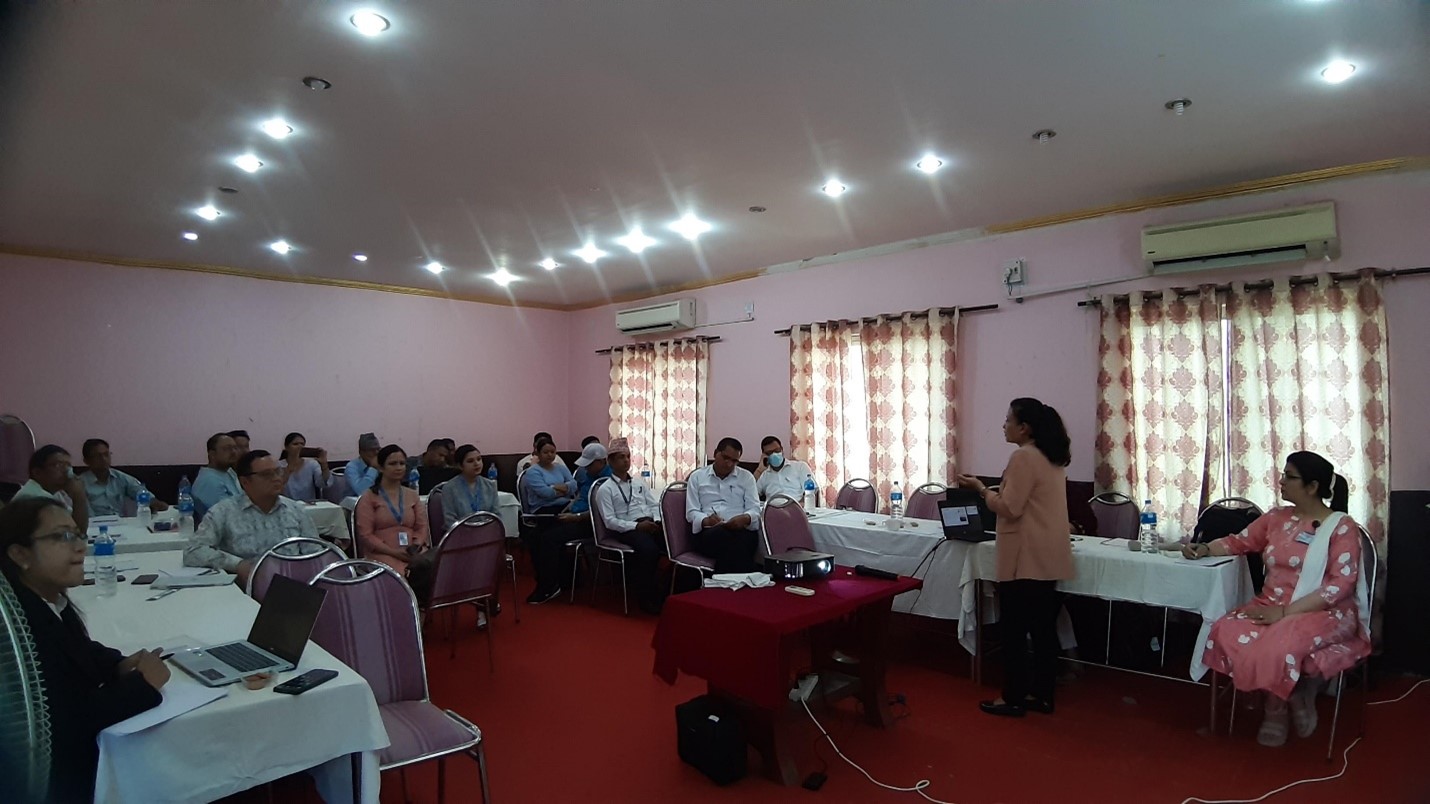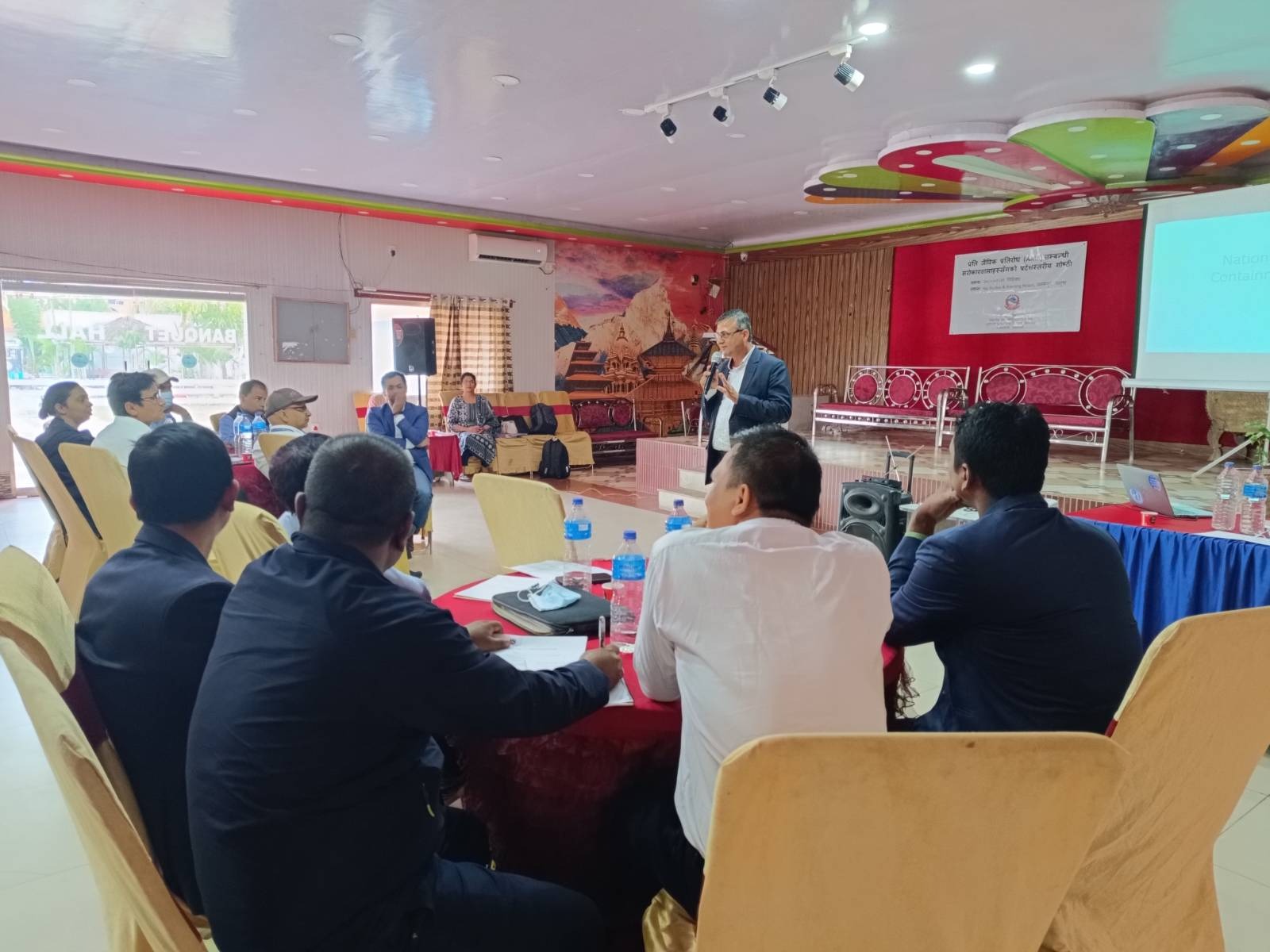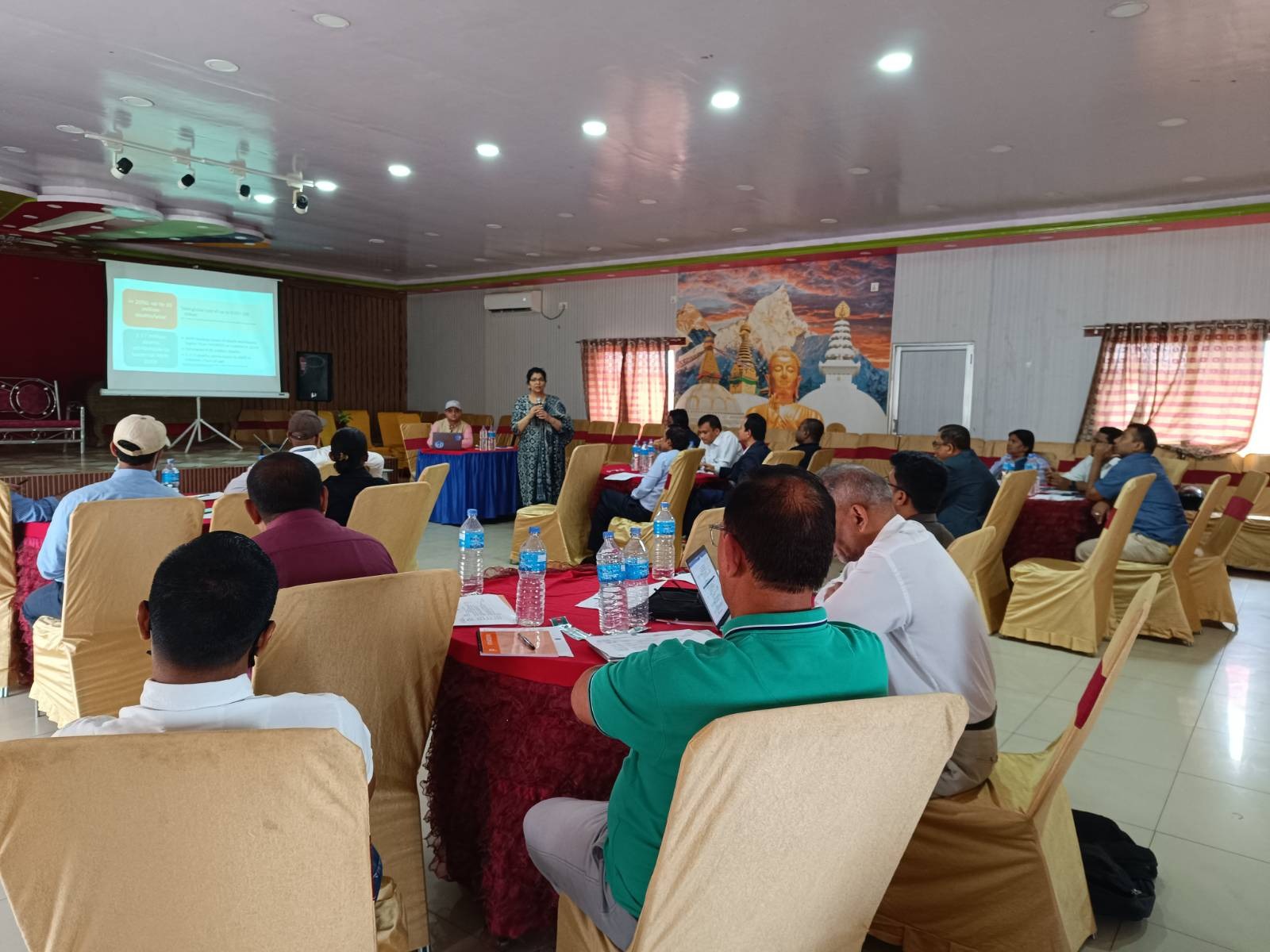Antimicrobial resistance (AMR) is a formidable global health threat, affecting not just health security but also food safety and economic prosperity.
AMR occurs when bacteria, viruses, fungi, and parasites change over time and no longer respond to medicines, making infections harder to treat and increasing the risk of disease spread, severe illness, and death. Misuse and overuse of antibiotics (for example, not finishing a prescribed antibiotic course or taking antibiotics when they are not needed, like for viral infections such as common flu) are the main drivers of AMR.
To address the threat of AMR in Nepal, the Quality Standards and Regulation Division (QSRD), under the Ministry of Health and Population (MoHP), and WHO, Country Office of Nepal, have jointly conducted awareness and education programs with a one-health approach in Madhesh, Sudurpashchim, Karnali, and Bagmati Province.

Usha Tandukar, Senior Drug Administrator at Quality Standards and Regulation Division, under the Ministry of Health and Population, facilitating a session on antimicrobial resistance as an emerging public health threat in Nepal during the provincial orientation program held in Sudurpashchim Province, Nepal. Photo credit: WHO Nepal
Between May-August 2023, one-day workshops were organized in the four provinces, which brought together 120 participants, including resource persons, from the fields of human health, animal health, food, environment, laboratory, drug administration, and academia.
During the workshop, focal points from MoHP presented on AMR as an emerging public health threat, containment activities in Nepal, and national AMR surveillance findings. Roles and responsibilities of professionals related to drug regulation, food safety, and animal health were further illustrated by MoHP, Department of Food Technology and Quality Control (under the Ministry of Agriculture and Livestock Development (MoALD)), and central and regional veterinary laboratories (under MoALD) respectively.

Dr Madan Kumar Upadhyay, Division Chief, Quality Standards and Regulation Division, Ministry of Health and Population, facilitating a session on containment strategies and relevant challenges in Nepal during the orientation program held in Madhesh Province. Photo credit: WHO Nepal/P. Shrestha
"These sessions are necessary to motivate provincial officials to invest their time and resources for AMR activities. We need to encourage experts and practitioners to adopt good AMR practices at the provincial level as this directly contributes to the AMR National Action Plan (NAP). They should be able to realize just how big a threat AMR is in their field of work,” said Dr Madan Kumar Upadhyay, Division Chief, QSRD, MoHP.

Jyoti Acharya, Chief Medical Lab Technologist, National Public Health Laboratory, Ministry of Health and Population, facilitating a session on national antimicrobial resistance surveillance findings during an orientation program in Madhesh Province, Nepal. Photo credit: WHO Nepal/P. Shrestha
The common platform provided stakeholders from various professional background to understand each other’s roles and fostered a sense of shared responsibility. Participants say that this has led to an increased desire among all actors to incorporate good AMR practices in their work, enhance coordination, and even initiate provincial activities to combat AMR.
One of the participants Dr. Arjun Bhatta, the Acting Medical Superintendent of Mahakali Provincial Hospital, Sudurpashchim Province, said: "My focus now will be on quality control of overall lab services in the hospital, including upgrading the laboratory department and microbiology lab with facility of culture service to facilitate early detection of AMR pattern.”
“The workshop has correctly emphasized that there must be coordinated global action to ensure prudent use of antibiotics,” said Dikshya Shrestha, Food Research Officer at the Food Technology and Quality Control Office, Surkhet. “I will dedicate more time in efforts to advocate for minimizing and rational use of antimicrobials in agriculture, enhance surveillance and testing methods, and promote responsible antibiotic use in food production.”

Participants from the orientation program held in Bagmati Province, Nepal. Photo credit: WHO Nepal
These educational sessions, which strongly emphasize AMR as a problem of high urgency, are also one of the strategies of the WHO's Global Action Plan, which serves as a blueprint for countries developing a national plan.
WHO will now support MoHP to provide technical support to the provincial stakeholders who implement AMR activities in the provinces.
“These orientation programs do not serve to be just information sessions, but also form the building blocks of a stronger, more resilient healthcare system in Nepal. By empowering professionals with knowledge and fostering a sense of shared responsibility, Nepal is taking a coordinated stand against this global and national health threat," said Dr Rajesh Sambhajirao Pandav, WHO Representative to Nepal. "With each educated mind and each strengthened lab, Nepal moves one step closer to a future where AMR is not a looming crisis, but a challenge met and overcome."
